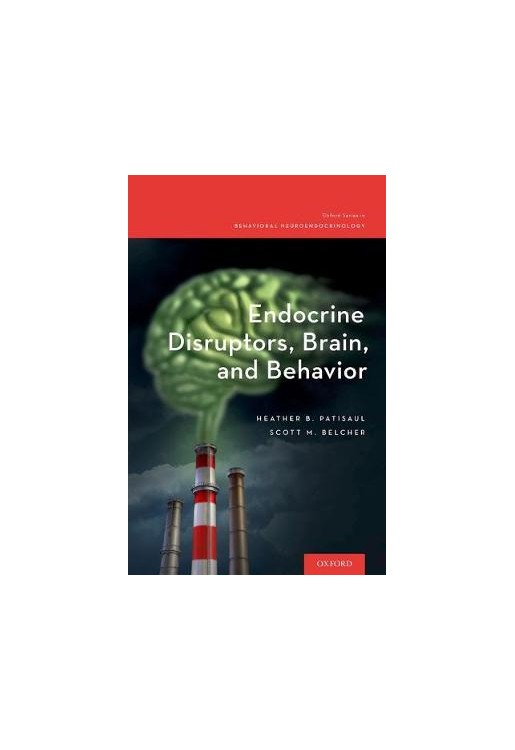Our world and bodies are becoming increasingly polluted with chemicals capable of interfering with our hormones and thus, possibly, our present and future neural and mental health. As authors Heather Patisaul and Scott Belcher outline, there is a large lack of data and evidence in this causal relationship, which begs a need for further study to accelerate progress in the endocrinology and neuroendocrinology fields.
Endocrine Disruptors, Brain, and Behavior focuses on if and how these chemicals, known as endocrine disrupting compounds (EDCs), affect the development and function of the brain and might be contributing to neural disorders rapidly rising in prevalence. The book provides an overall synthesis of the EDC field, including its historical roots, major hypotheses, key findings, and research gaps. The authors explain why even the concept of endocrine disruption is controversial in some circles, how
differing definitions of endocrine disruption and what constitutes an "adverse" outcome on the brain shape public policy, and where the current capacity by different stakeholders (industry, academia, regulatory agencies) to evaluate chemicals for safety in a regulatory context begins and ends. The
book concludes with suggestions for future research needs and a summary of emerging technology which might prove capable of more effectively evaluating existing and emerging chemicals for endocrine disrupting properties. As such, it provides the context for interdisciplinary and innovative input from a broad spectrum of fields, including those well-schooled in neuroscience, evolutionary biology, brain, behavior, sex differences, and neuroendocrinology. "Endocrine Disruptors, Brain, and Behavior is a MUST READ for basic scientists and their trainees in the fields of endocrinology and neuroendocrinology-as well as for others who want to understand the issues of 'EDCs.' Two world-class scientists-Heather Patisaul and Scott Belcher, both with national and international experience in the area-bring this very complex topic to the reader in an entirely understandable way. . . . The authors have done a remarkable job
separating the science from the politics-and this is no easy task on this subject. I am deeply grateful for this scholarly and readable treatment!"-Thomas Zoeller, PhD, Professor of Biology, University of Massachusetts Amherst "Patisaul and Belcher eloquently depict how the competing desires for a safer, healthier world and 'better living through chemistry' have woven threads of science and policy into a messy tapestry with many scientific holes to be filled and regulatory knots to be untangled. Their descriptions of the complex behaviors of cells, laboratory animals, and humans make it clear that the endocrine system, particularly as it functions through the brain, is critical to
optimizing both.> * Carol Kwiatkowski, PhD, Executive Director of The Endocrine Disruption Exchange (TEDX), and Assistant Professor Adjunct, University of Colorado, Boulder
* "With Endocrine Disruptors, Brain, and Behavior two renowned scientists clarify the complexities of how environmental chemicals act on our children's brains. But going beyond the understandable disquiet they emphasize that increasing knowledge can empower us to find solutions and new ways forward. An important book."-Barbara Demeneix, PhD, Professor and Head of Department, Comparative Physiology Laboratory, Natural History Museum, Paris and author of
Toxic Cocktail: How Chemical Pollution Is Poisoning Our Brains (OUP 2017)
Chapter 1: The Chemical Landscape
Chapter 2: Defining Endocrine Disruption
Chapter 3: Landmark EDCs of the Past and Present
Chapter 4: The Neuroendocrine System and General Mechanisms of Endocrine Disruption
Chapter 5: Receptor and Enzyme Mechanisms as Targets for Endocrine Disruptors
Chapter 6: Endocrine Disruptors and Neurobehavioral Disorders
Chapter 7: Risk Assessment and Chemical Regulatory Policy in the US and Abroad
Chapter 8: The Path Forward
Index


